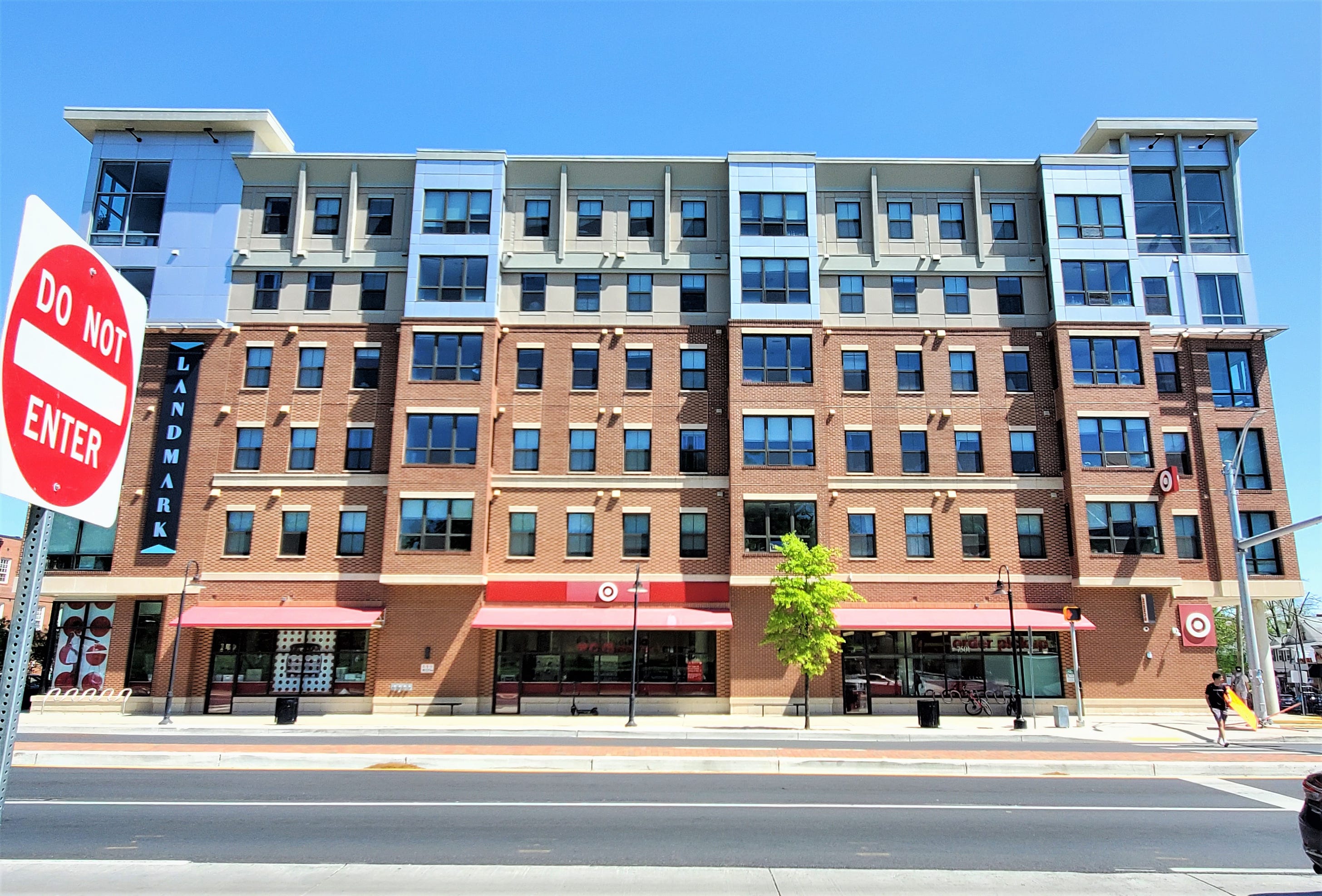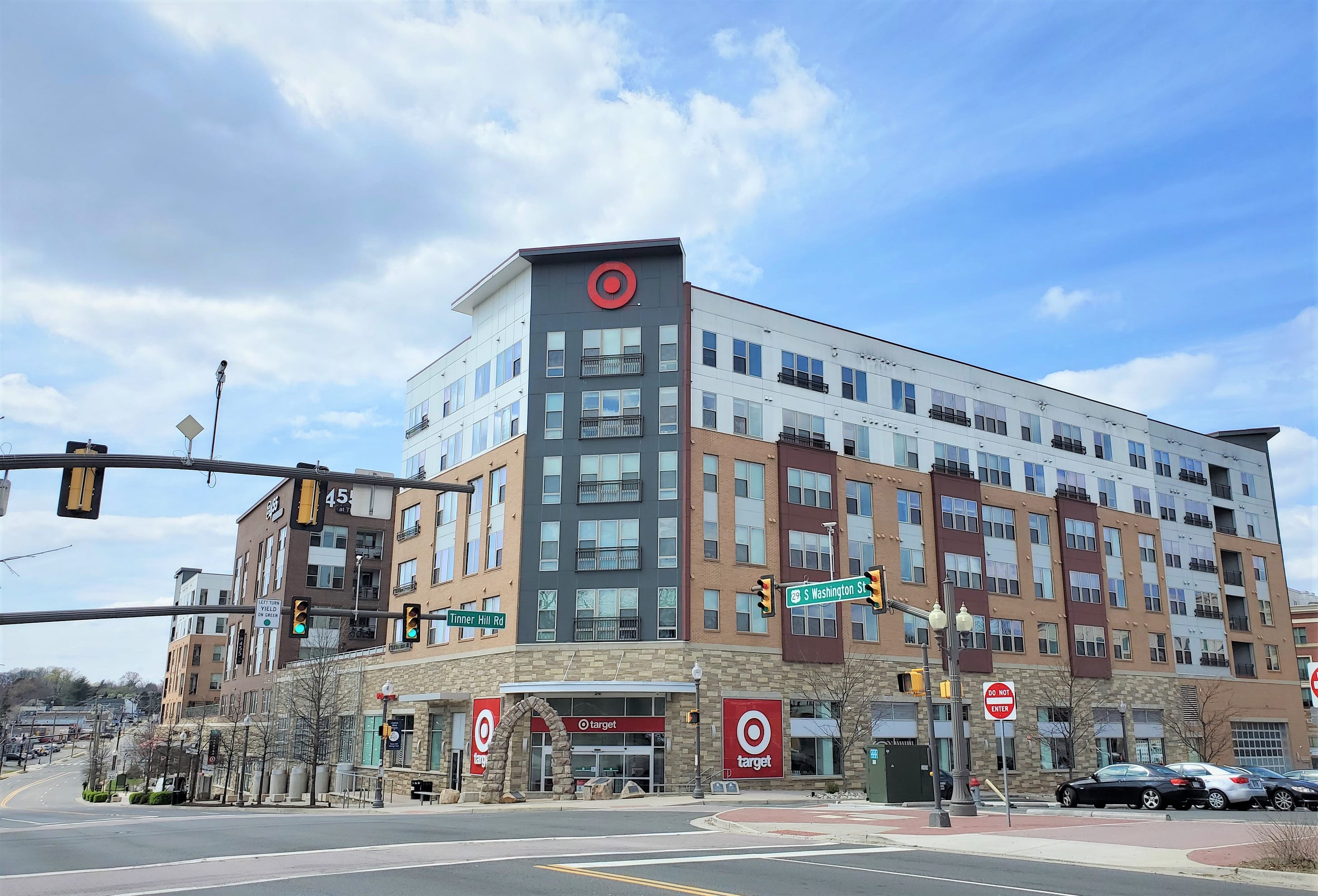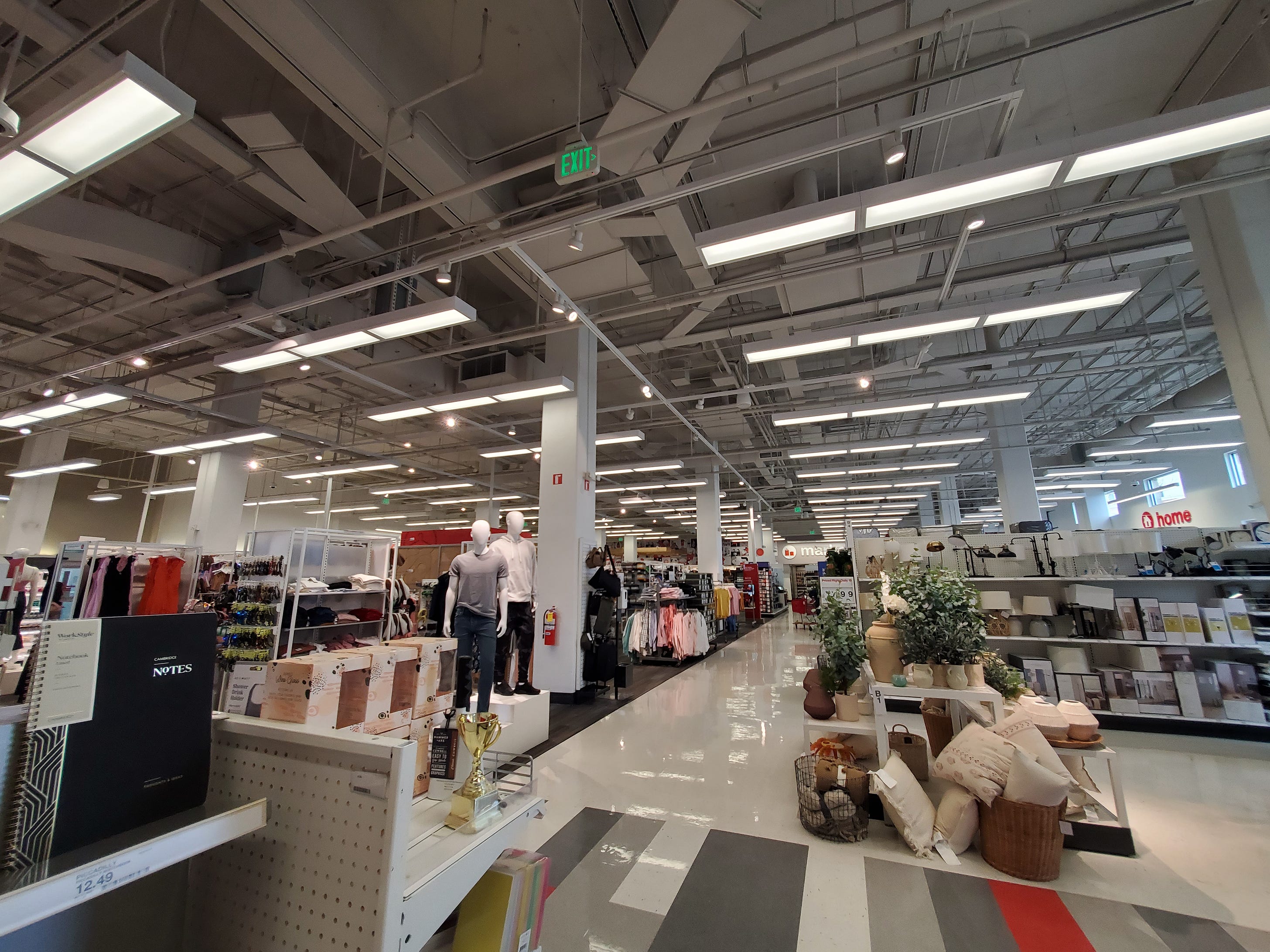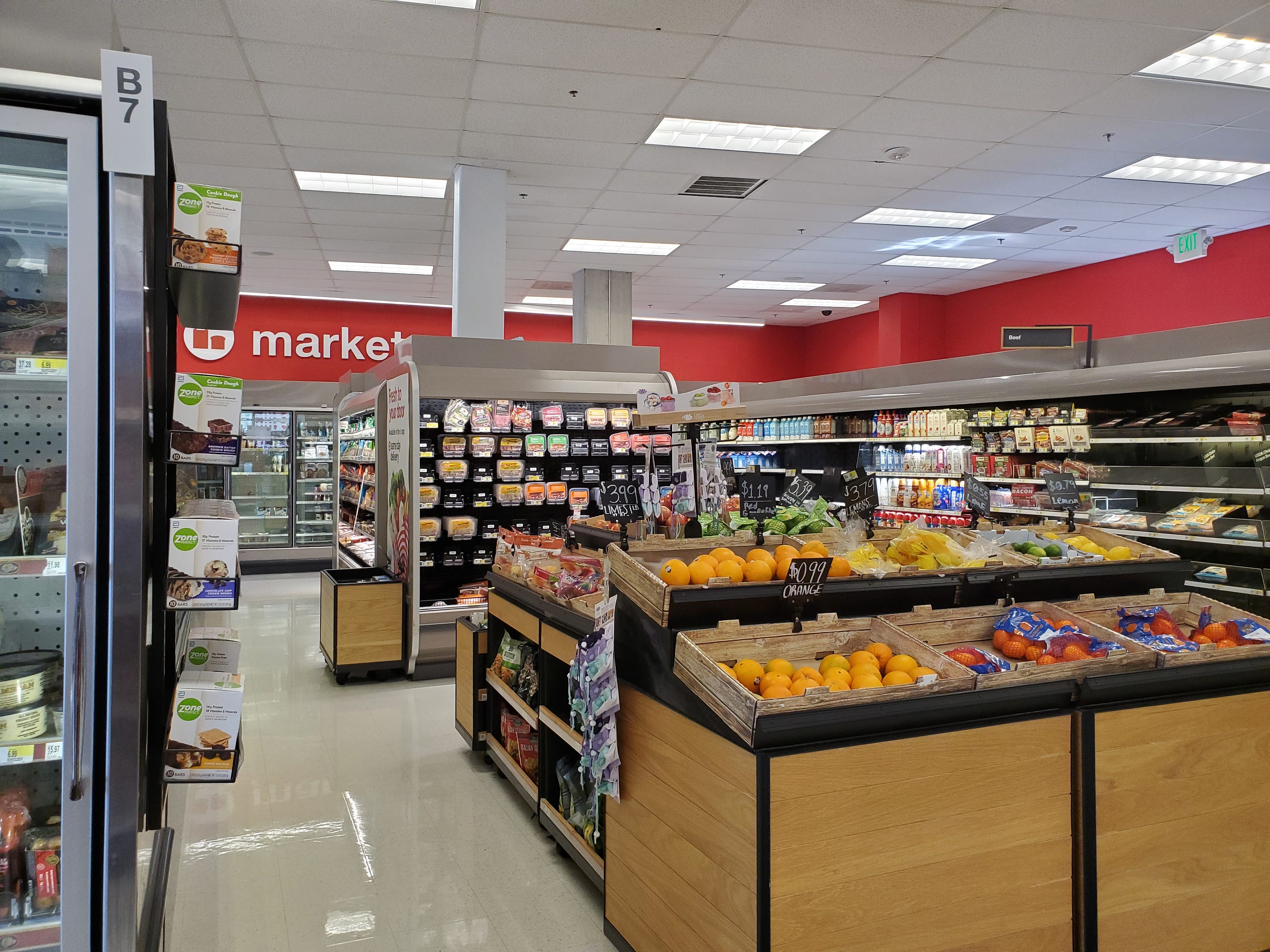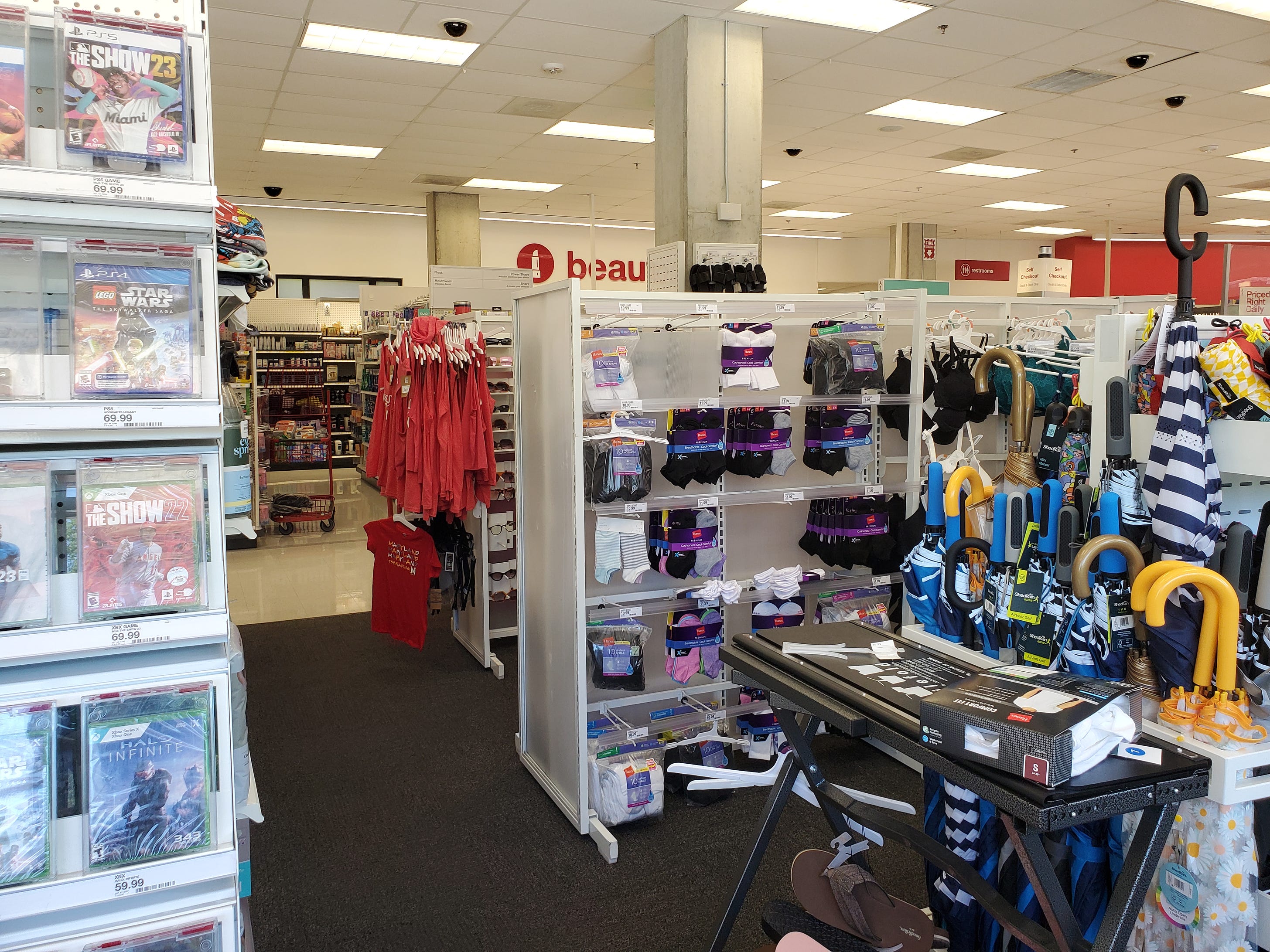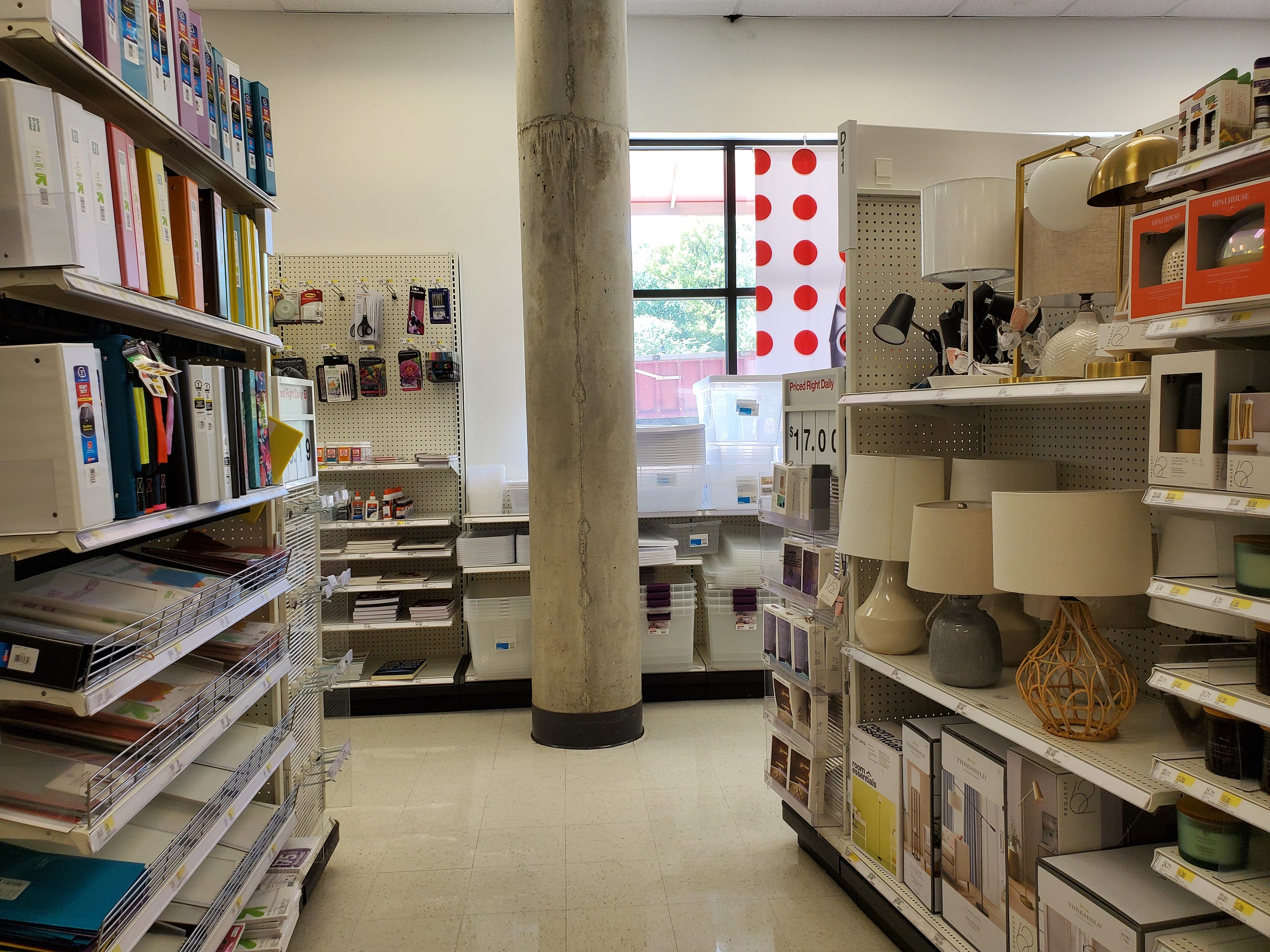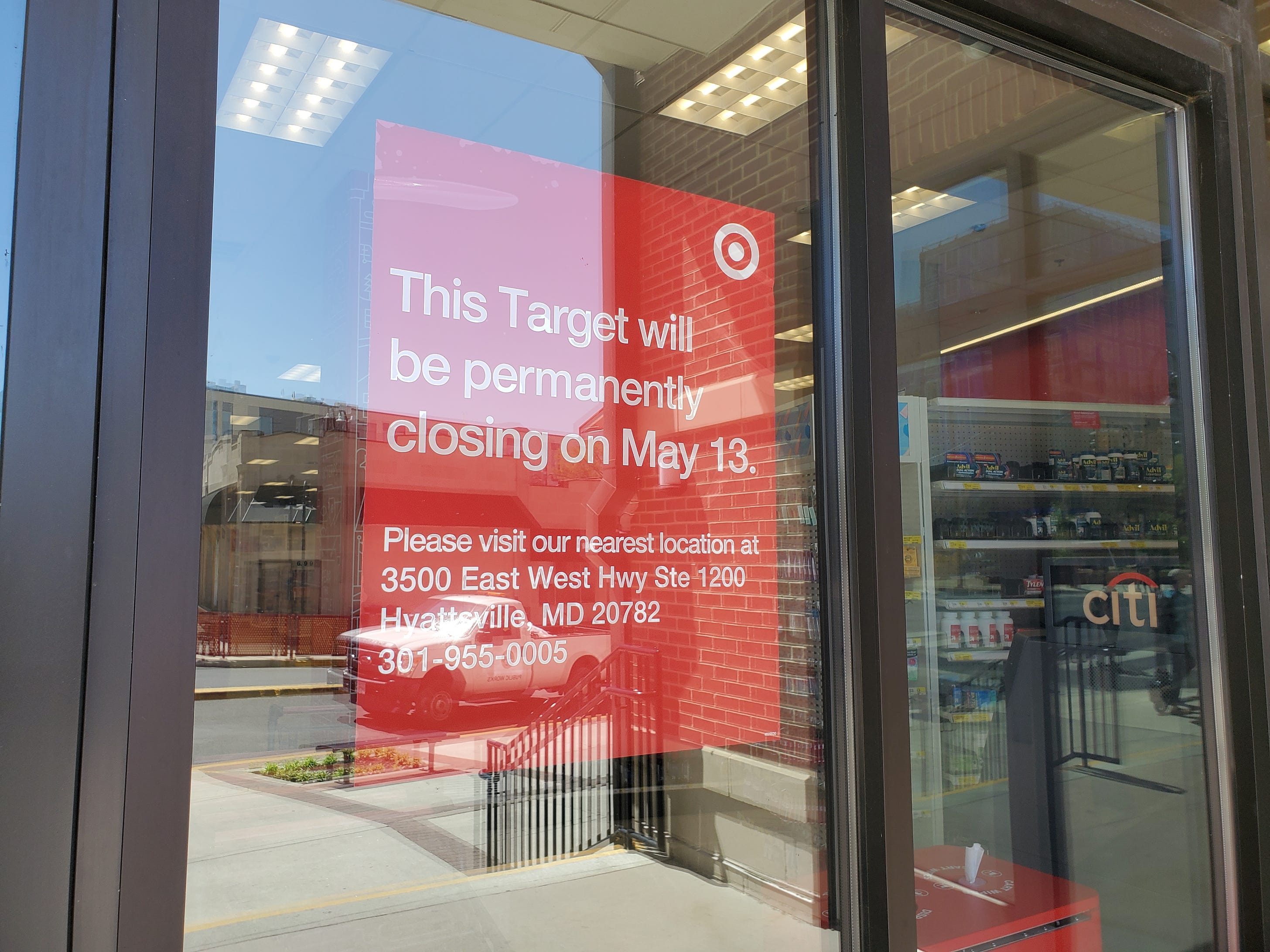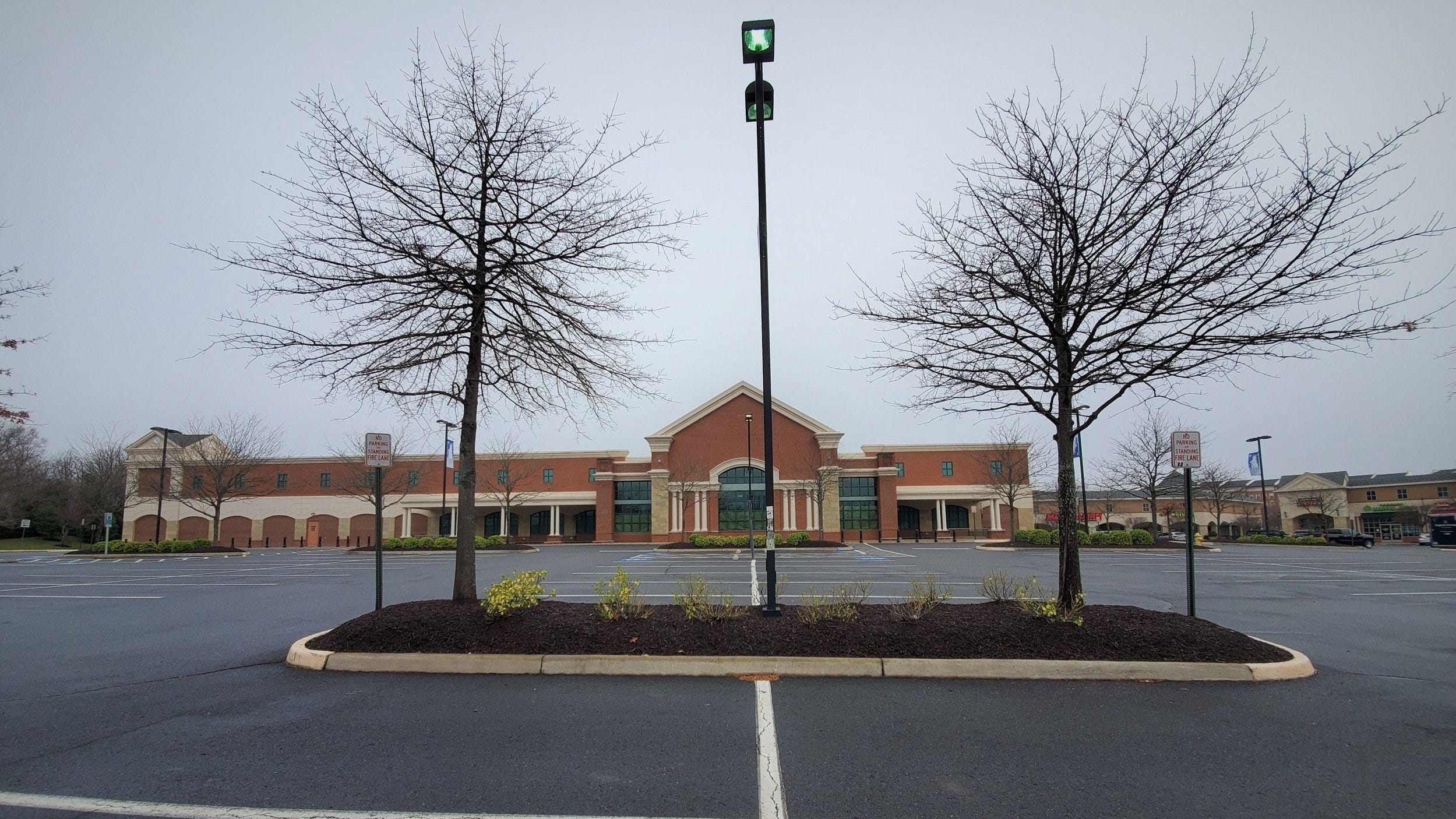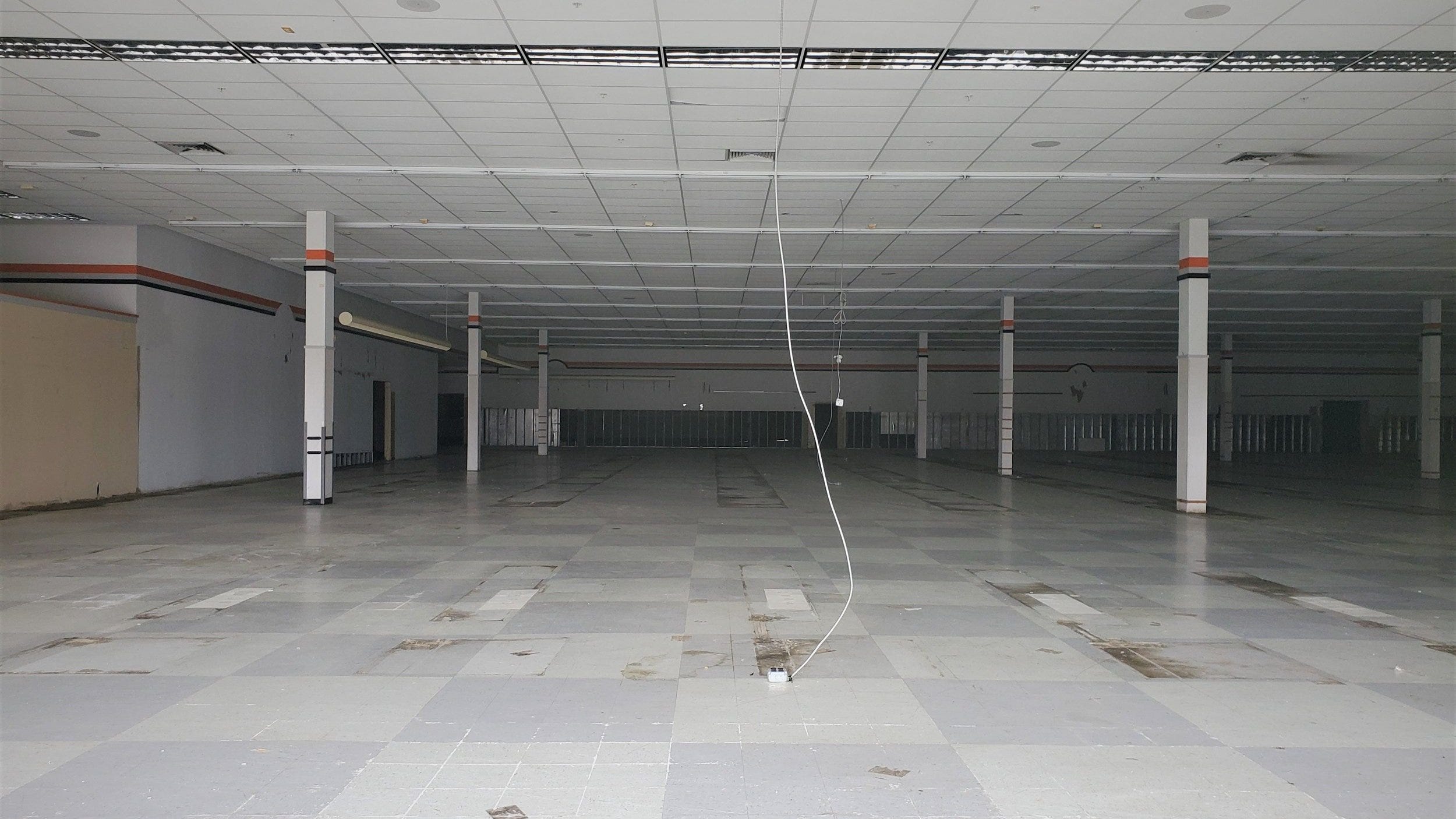The Deleted Scenes - Not Quite on Target
Back in March, Target announced the impending closure of two D.C.-area stores. There are a lot of Targets scattered around the D.C. suburbs in Maryland and Virginia. A couple of them are older, so when I saw the headline I thought Target might be paring down its oldest strip-retail locations—to focus, perhaps, on expanding its emerging small-format stores in more urban locations. But I read the article, and that is not the case. In fact, these two Targets are among the metro area’s newest locations. One opened in 2015; the other opened in late 2016 or early 2017. And would you look at them. First, in College Park, Maryland: And second, in Falls Church, Virginia: Not only are they newer stores; they anchor large new apartment buildings, turning them into mixed-use developments. The one in College Park is right in the middle of the main drag, a boon for carless students in particular. It was met with excitement, given the city’s relative lack of walkable everyday shopping, and seen as part of a larger urban transformation of the area. “More high-end student apartments are going up on Route 1, and last week Target announced plans to open one of the nation’s first Target Express stores inside one of them,” wrote Maryland urbanist Dan Reed in early 2015. The Washington Post article Reed cites identifies the College Park mini-Target as only 14,617 square feet, roughly the size of a CVS or Walgreens. These stores include a fresh and frozen grocery section and a smattering of offerings from most of the expected departments, albeit with greatly reduced selection. The Post also noted that at the time, there were only three other small-format Targets in the nation. Target itself, in 2019, boasted that it had opened nearly 100 of these mini-Targets, heavily skewed toward college towns, and that it was still opening them across the country. As far a I can tell, that hasn’t changed overall; plenty of these stores do survive. Here’s what they look like inside: But, sadly: The fact is, most non-students, and many students with a car, probably were hopping in the car and driving to the Hyattsville, or slightly further Greenbelt, locations all along, neither of which is terribly convenient to visit without a car. And while the small-format Targets—sometimes affectionately called “baby Targets”—are useful, they’re not the true one-stop-shop emporiums that traditional Target stores are. The immediate reason for these closures is probably poor store performance. Despite all of the people living nearby, it’s just not enough. But this particular challenge underscores the broader issue with mixed use as a developer-driven concept, where you try to reverse engineer something like an urban neighborhood by getting one or a few chain stores on board. The fundamental problem is that the economics of a Target, or a modern supermarket, are very different from the economics of a genuine neighborhood store. They just aren’t scaled for this kind of local neighborhood setting. Everybody in a new apartment building would probably appreciate a discount department store or a supermarket on the ground floor, or right next door. But the business model of discount department stores and supermarkets precludes that. In the old days, when every small town had its own economic ecosystem, all those towns had their own hardware stores, butchers, bakeries, grocery stores, bookstores, etc. Those businesses were scaled to serve perhaps no more than a few hundred people, and rarely more than a few thousand. So were their supply chains. But the “trade areas” of modern stores are larger, and simply shrinking the physical footprint doesn’t quite turn a Target into a neighborhood general store. Take a look at these photos I took in Gainesville, Virginia, an exurban Northern Virginia community: These are two different vacant supermarkets, both adjacent to relatively recent dense housing, and both intended to create mixed-use developments. They’re about two miles apart. A Wegmans opened up nearby, and drove them out of business. Now two “mixed-use developments” have no supermarket, and like everybody else, their residents have to drive to Wegmans whether they want to or not. You cannot—or you can, only with difficulty and luck—build traditional urbanism out of suburban, car-oriented building blocks. Target, perhaps, is learning this. Those erstwhile supermarkets learned it. I hope that this isn’t the beginning of a collapse or oversaturation of the mixed-use development model, because it’s better than the alternative. But I do hope it gets us thinking more deeply and seriously about how to spur genuine mixed-use development, more than attempting to reverse-engineer mixed-use developments. Related Reading: Thank you for reading! Please consider upgrading to a paid subscription to help support this newsletter. You’ll get a weekly subscribers-only post, plus full access to the archive: over 600 posts and growing. And you’ll help ensure more material like this! You're currently a free subscriber to The Deleted Scenes. For the full experience, upgrade your subscription. |
Older messages
Grill of My Dreams
Wednesday, April 19, 2023
My suburban life is complete, plus very long thoughts on urbanism and culture war
Silver Lining
Wednesday, April 19, 2023
Is more transit always better?
New and Old #105
Wednesday, April 19, 2023
Friday roundup and commentary
Some Days It Feels Like Every Day
Wednesday, April 19, 2023
Thoughts on frustration and convenience (and urbanism)
Road Diary: Culpeper Edition
Wednesday, April 19, 2023
Assorted notes from the road
You Might Also Like
*This* Is How To Wear Skinny Jeans Like A Fashion Girl In 2025
Wednesday, March 12, 2025
The revival is here. The Zoe Report Daily The Zoe Report 3.11.2025 This Is How To Wear Skinny Jeans Like A Fashion Girl In 2025 (Style) This Is How To Wear Skinny Jeans Like A Fashion Girl In 2025 The
The Best Thing: March 11, 2025
Tuesday, March 11, 2025
The Best Thing is our weekly discussion thread where we share the one thing that we read, listened to, watched, did, or otherwise enjoyed recent… ͏ ͏ ͏ ͏ ͏ ͏ ͏ ͏ ͏ ͏ ͏ ͏ ͏ ͏ ͏ ͏ ͏ ͏ ͏ ͏ ͏ ͏ ͏ ͏ ͏ ͏ ͏ ͏
The Most Groundbreaking Beauty Products Of 2025 Are...
Tuesday, March 11, 2025
Brands are prioritizing innovation more than ever. The Zoe Report Beauty The Zoe Report 3.11.2025 (Beauty) The 2025 TZR Beauty Groundbreakers Awards (Your New Holy Grail Or Two) The 2025 TZR Beauty
Change Up #Legday With One of These Squat Variations
Tuesday, March 11, 2025
View in Browser Men's Health SHOP MVP EXCLUSIVES SUBSCRIBE Change Up #Legday With One of These Squat Variations Change Up #Legday With One of These Squat Variations The lower body staple is one of
Kylie Jenner Wore The Spiciest Plunging Crop Top While Kissing Timothée Chalamet
Tuesday, March 11, 2025
Plus, Amanda Seyfried opens up about her busy year, your daily horoscope, and more. Mar. 11, 2025 Bustle Daily Amanda Seyfried at the Tory Burch Fall RTW 2025 fashion show as part of New York Fashion
Paris Fashion Week Is Getting Interesting Again
Tuesday, March 11, 2025
Today in style, self, culture, and power. The Cut March 11, 2025 PARIS FASHION WEEK Fashion Is Getting Interesting Again Designs at Paris Fashion Week once again reflect the times with new aesthetics,
Your dinner table deserves to be lazier
Tuesday, March 11, 2025
NY delis are serving 'Bird Flu Bailout' sandwiches.
Sophie Thatcher Lets In The Light
Tuesday, March 11, 2025
Plus: Chet Hanks reaches new heights on Netflix's 'Running Point.' • Mar. 11, 2025 Up Next Your complete guide to industry-shaping entertainment news, exclusive interviews with A-list
Mastering Circumstance
Tuesday, March 11, 2025
“If a man does not master his circumstances then he is bound to be mastered by them.” ͏ ͏ ͏ ͏ ͏ ͏ ͏ ͏ ͏ ͏ ͏ ͏ ͏ ͏ ͏ ͏ ͏ ͏ ͏ ͏ ͏ ͏ ͏ ͏ ͏ ͏ ͏ ͏ ͏ ͏ ͏ ͏ ͏ ͏ ͏ ͏ ͏ ͏ ͏ ͏ ͏ ͏ ͏ ͏ ͏ ͏ ͏ ͏ ͏ ͏ ͏ ͏ ͏ ͏ ͏ ͏ ͏ ͏
Don't Fall for This Parking Fee Scam Text 🚨
Tuesday, March 11, 2025
How I Use the 'One in, One Out' Method for My Finances. You're not facing any fines. Not displaying correctly? View this newsletter online. TODAY'S FEATURED STORY Don't Fall for the
